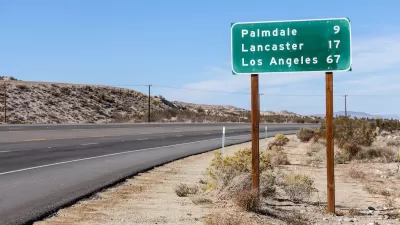Governments are mobilizing resources to address the impacts of longer and more intense heat waves on public health and infrastructure.

In a piece for Pew Trusts, Kristiane Huber outlines state and federal efforts to prepare for extreme heat and protect residents from its most severe impacts.
As Huber points out, “The problem is likely to get worse, as the National Oceanic and Atmospheric Administration (NOAA) predicts there is a 55% chance that 2024 will be hotter than 2023—the hottest year since global records began in 1850.”
At the state level, New Jersey, New York, North Carolina, Arizona, and others have issued action plans and toolkits to guide local governments and explore mitigation strategies. Some cities have also created offices dedicated to heat mitigation.
For its part, the federal government launched the heat.gov website, which offers resources and tools for communities, and “The U.S. Centers for Disease Control and Prevention (CDC) released a new Heat and Health Index, a national tool intended to identify the places most likely to experience negative heat-related health impacts and to help communities prepare for a hotter future.”
Huber concludes, “The concerted effort across federal and state governments to raise awareness, develop strategies, and invest in near- and long-term solutions in response to extreme heat represents a significant step in preparing communities and ecosystems for the perils of a warmer climate.” However, more resources are needed to ensure these efforts reach the communities most at risk.
FULL STORY: The Era of Extreme Heat Is Here: Federal and State Governments Roll Out Strategies to Cope

Alabama: Trump Terminates Settlements for Black Communities Harmed By Raw Sewage
Trump deemed the landmark civil rights agreement “illegal DEI and environmental justice policy.”

Study: Maui’s Plan to Convert Vacation Rentals to Long-Term Housing Could Cause Nearly $1 Billion Economic Loss
The plan would reduce visitor accommodation by 25% resulting in 1,900 jobs lost.

Planetizen Federal Action Tracker
A weekly monitor of how Trump’s orders and actions are impacting planners and planning in America.

Waymo Gets Permission to Map SF’s Market Street
If allowed to operate on the traffic-restricted street, Waymo’s autonomous taxis would have a leg up over ride-hailing competitors — and counter the city’s efforts to grow bike and pedestrian on the thoroughfare.

Parklet Symposium Highlights the Success of Shared Spaces
Parklets got a boost during the Covid-19 pandemic, when the concept was translated to outdoor dining programs that offered restaurants a lifeline during the shutdown.

Federal Homelessness Agency Places Entire Staff on Leave
The U.S. Interagency Council on Homelessness is the only federal agency dedicated to preventing and ending homelessness.
Urban Design for Planners 1: Software Tools
This six-course series explores essential urban design concepts using open source software and equips planners with the tools they need to participate fully in the urban design process.
Planning for Universal Design
Learn the tools for implementing Universal Design in planning regulations.
Caltrans
Smith Gee Studio
Institute for Housing and Urban Development Studies (IHS)
City of Grandview
Harvard GSD Executive Education
Toledo-Lucas County Plan Commissions
Salt Lake City
NYU Wagner Graduate School of Public Service





























